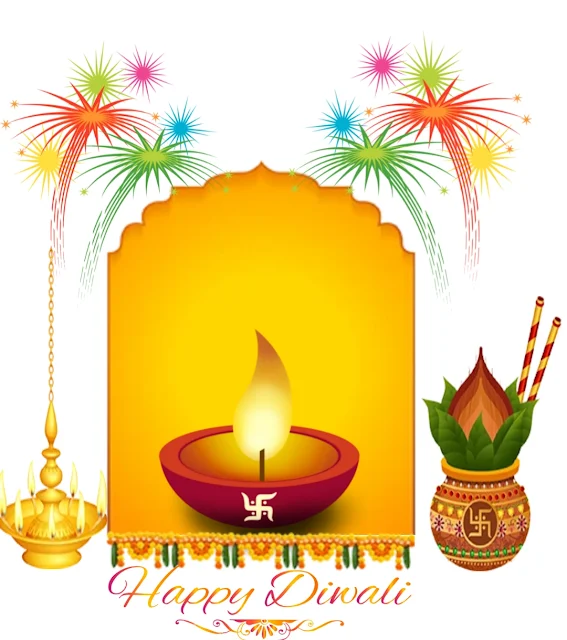Welcome to top10google.com, I'm Ghanshyam and I'm excited to get into today's facts with you. Diwali, the Indian festival of lights, is one of the most widely celebrated festival in the world. While Diwali is one of the few festivals in India that does not have a religion route and is celebrated across the country, it is also a festival that has many stories associated with it, as the number of different traditions and religions that celebrate it. Here are 10 surprising facts about Diwali that you may not already have known. Starting in at fact
Fact Number 10
Diwali is a festival across religious lines.
Now, while Diwali is considered predominantly to be a Hindu festivity, the reality is that an occasion like this is celebrated by several other religions, including Jainism, Sikhism, and numerous folk religions. The word Diwali or Deepavali, as it's sometimes called, means row of lights in an ancient language of India, called Sanskrit. During this festival, people decorate their homes with lights and oil lamps called Dias. Statues of Lakshmi, the four-armed Hindu goddess of prosperity, and of Ganesh, the Hindu lord of success, usually referred to as the elephant god, are also cherished and decorated with flowers in many homes.
Fact Number 9
one festival with many stories.
As a truly global festival with a sizable Indian diaspora in almost every corner of the world, Diwali is celebrated with much fervor in several countries, including Sri Lanka, Pakistan, Indonesia, Fiji, Thailand, Mauritius, Australia, Canada, and more. As mentioned earlier, several religions celebrate Diwali, honoring different traditions and deities to which they pray on Diwali. These religions also sometimes have different mythological versions of the same tales behind the significance of Diwali. We're going to look at those tales in the next few facts. Alright,
Fact Number 8
Lakshmi roaming the earth.
The prime reason why Diwali is marked by flamboyant decorations, new clothes, and flashy displays of color and lights is because it is widely believed that Diwali is the day on which the Hindu goddess of prosperity, Lakshmi, supposedly roams the earth and blesses people with wealth and happiness. Individuals and families decorate with lights and lamps as they are said to help Lakshmi find her way into people's homes, bringing prosperity in the year to come.
Fact Number 7
the Nirvana of Mahavira,
another popular belief that signifies the occasion of Diwali for Jainism, India's sixth largest religion, is that his is the day on which the last of the 24 great teachers, Lord Mahavira, attained Nirvana.
Fact Number 6
Guru Govindji's escape.
While most traditions surround Diwali go back thousands of years, one of the most recent traditions associated with it is the one in Sikhism. Sikhs celebrate Diwali as the occasion on which their teacher Guru Hargobindji was released from the captivity of Mughal ruler Jahangir in Gwalior, along with several other Hindu kings.
Fact Number 5
the return of Rama to Ayodhya.
The most popular tradition behind Diwali dictates that it marks the day on which the Hindu deities Rama and Sita returned home to King Ravana. According to mythology, lighting fixtures in all throughout the country to have a good time his go back to rule.
Fact Number 4
the triumph of good over evil.
In southern parts of India, however, Diwali or Deepavali is celebrated as the day on which Lord Krishna killed the demon Narakasura and brought peace to the lands. According to legends, Narakasura repented in his last moments and requested Mother Earth that his death be celebrated with lights and colors across the lands every year, a wish that was gladly granted. Now that we've looked at a few of the different significances behind Diwali,
Fact Number 3
the traditional Diwali food.
Diwali is different from many other Indian festivals in that there is no fasting, but instead feasts celebrating the seasonal bounty. Traditional Diwali food includes sweets such as delicious halwa, syrupy gulab jamun balls, barfi, karanji, bundiladu, rasgula, and kaju katli. You'll also see desserts like kir, a rice pudding infused with cardamom and often with raisins, almonds, and saffron. This amazing array of sweets is usually served alongside a cup of masala chai tea, as snacks, on their own after meals, or even sometimes alongside a meal.
Fact Number 2
Diwali is a five-day celebration?
While South India celebrates Diwali as a one-day festival, most parts of North and Northwest India observe it as a five-day festivity marking the start of the Hindu New Year. The precise dates alternate every yr and are decided via way of means of the location of the moon, however it typically falls among October and November. Keep in mind, this festival is not just about lights and legends. Diwali is a time to have a laugh with buddies and family. People exchange gifts and sweets, enjoy delicious feasts, watch firework displays, wear new clothing. It's a time to clean and decorate your home. And along with decorations come the beautiful tradition of Rangoli. Rangoli are beautiful patterns made using colorful powders and flowers. People draw Rangoli at the ground via way of means of the doorway in their houses to welcome the gods and convey properly luck.
Fact Number 1
day of peace against all odds.
India and Pakistan have been at odds and have fought three wars over the past 70 years and as a result the border between the two countries is usually a little tense. However, Diwali is one of the few occasions on which soldiers from both sides lay aside their differences, meet and greet and even distribute sweets across the border to their counterparts every year.
Well friends, there you have it, 10 interesting facts about Diwali. It's always fun learning about different cultures, traditions, religions and people with you all.
thank you.










0 Comments